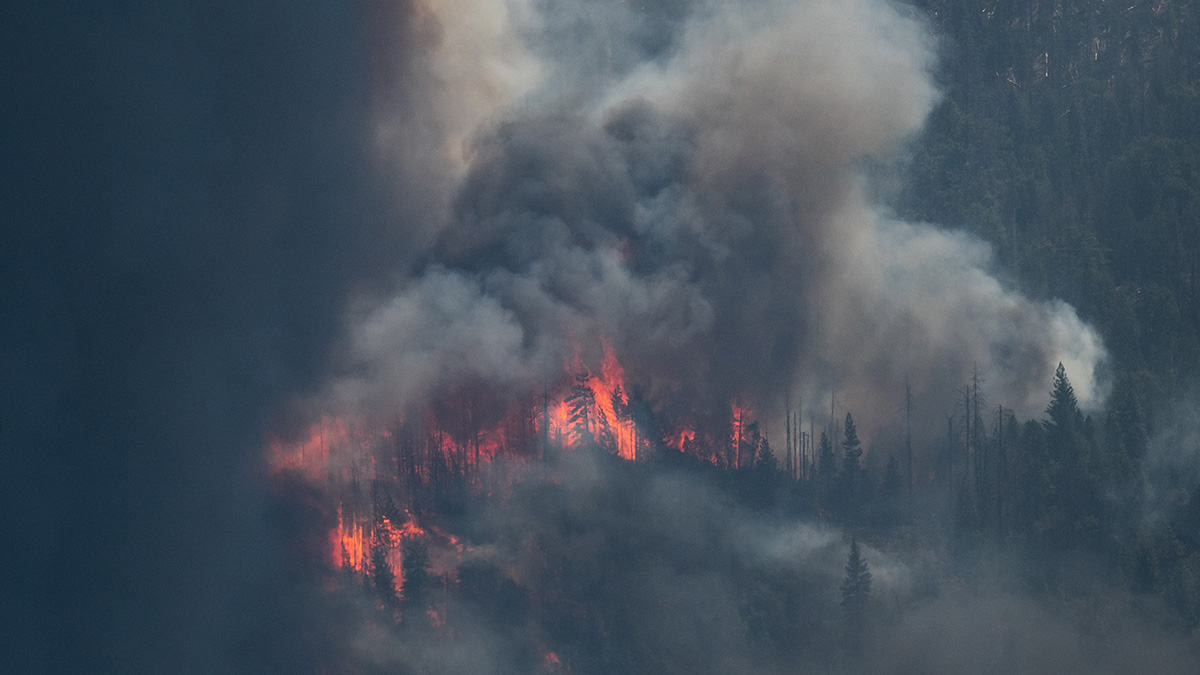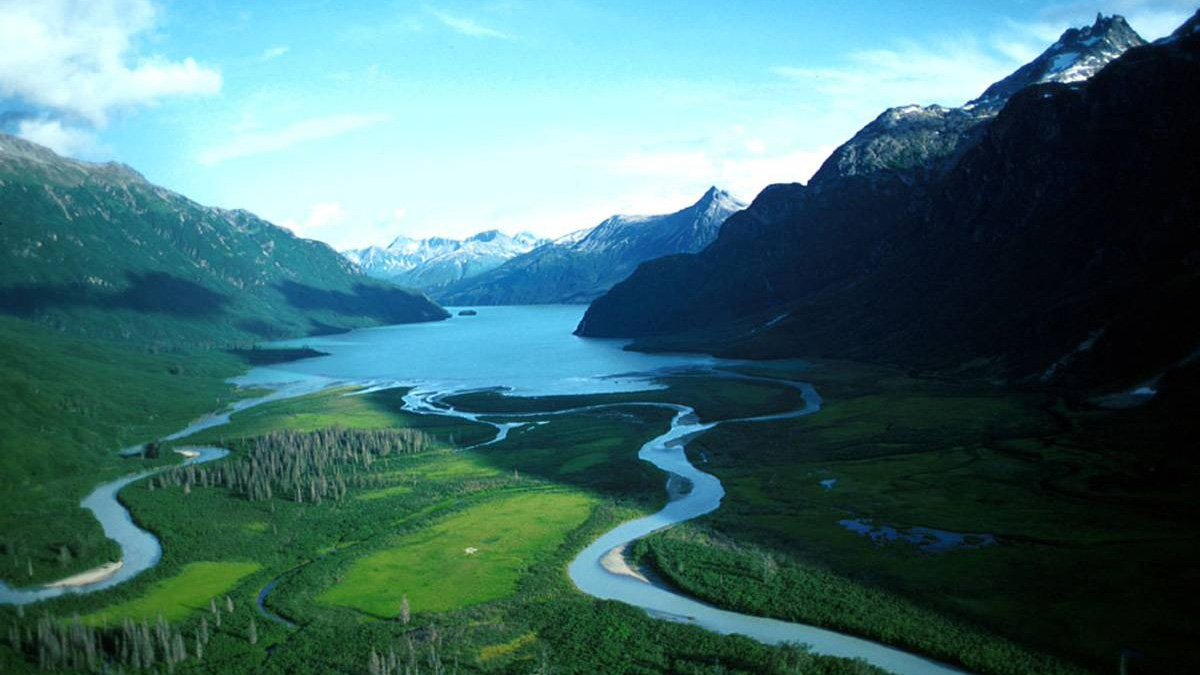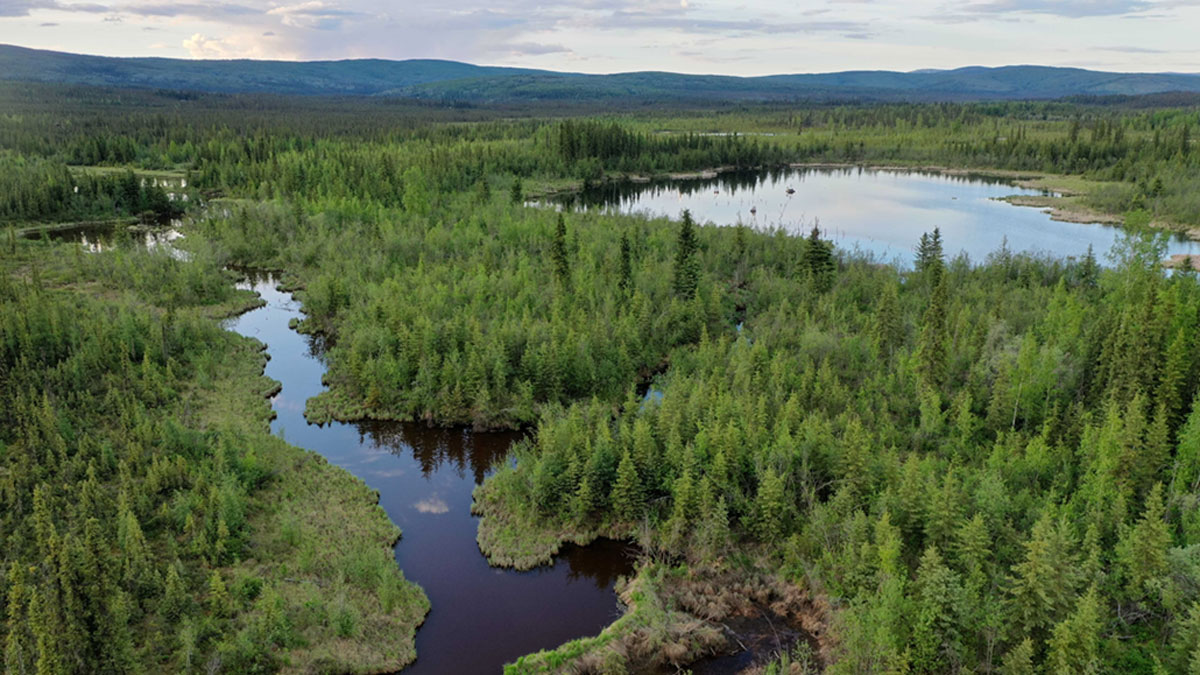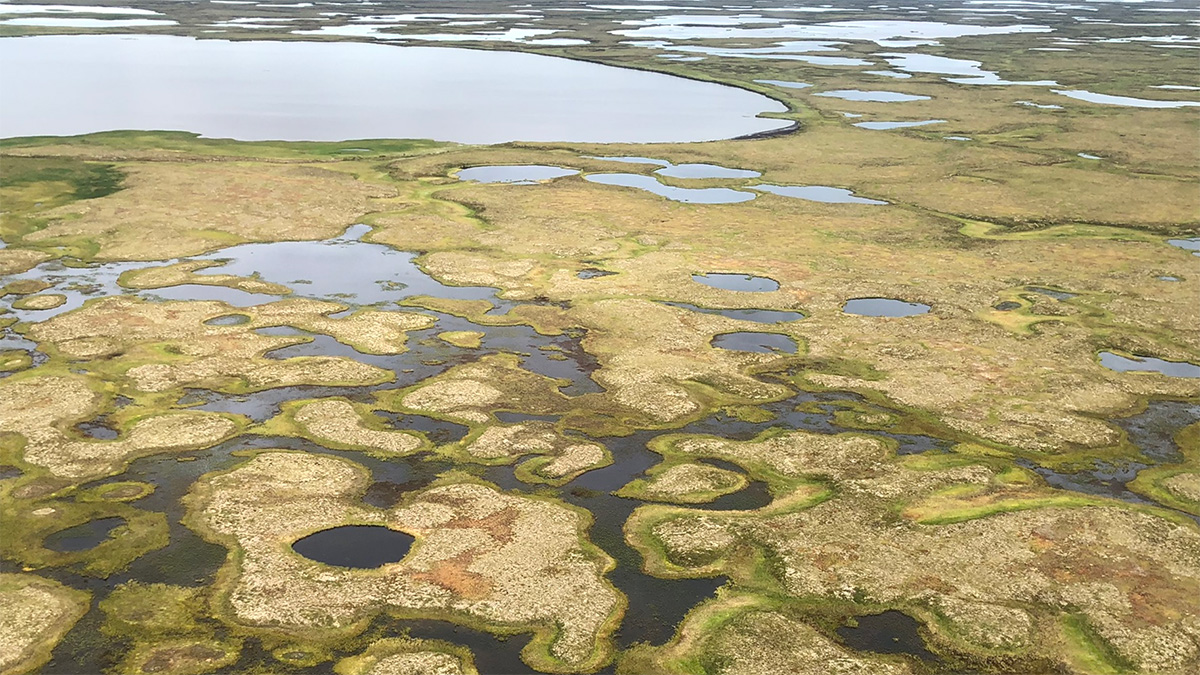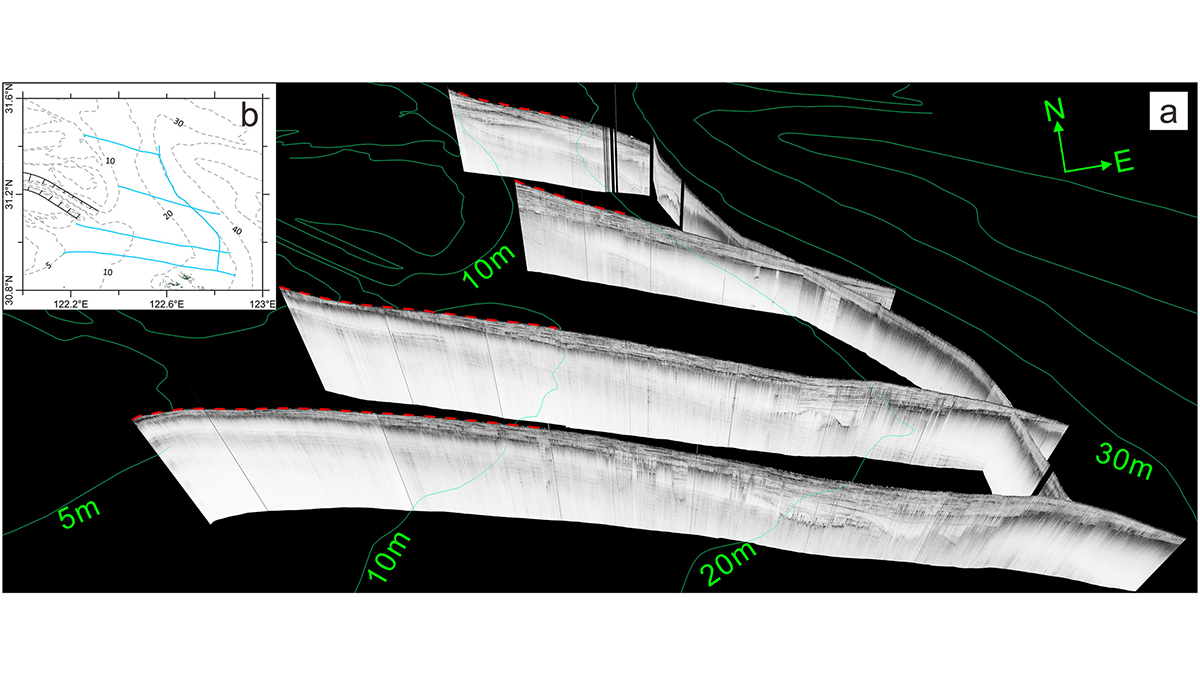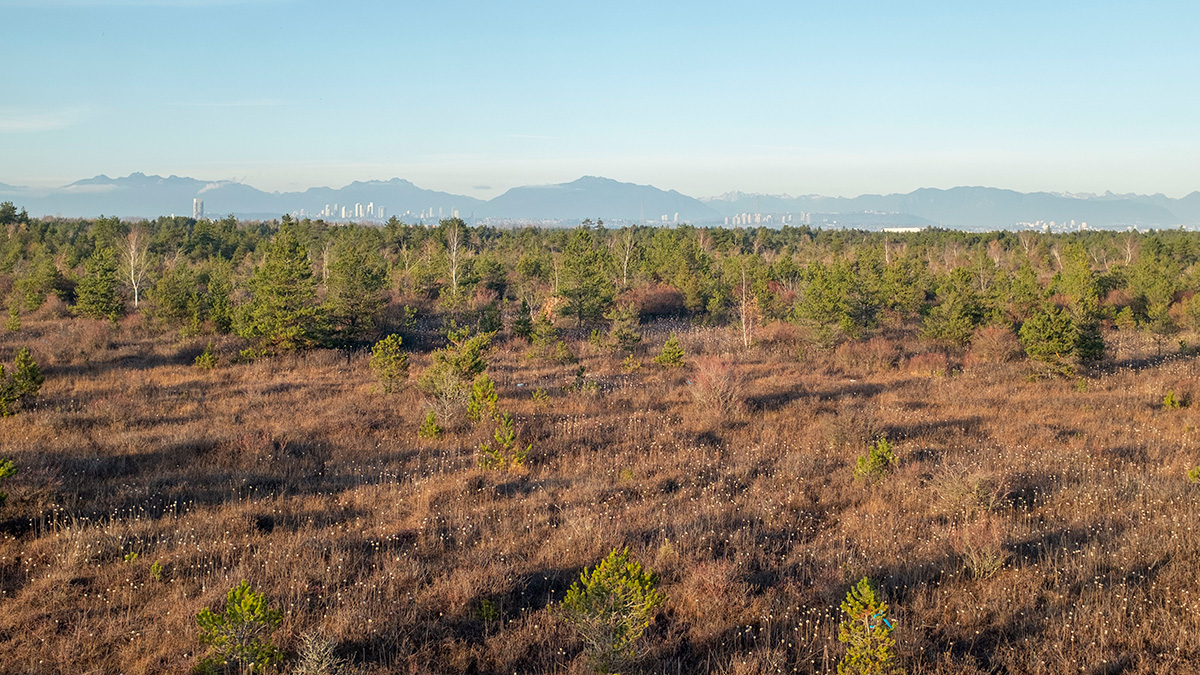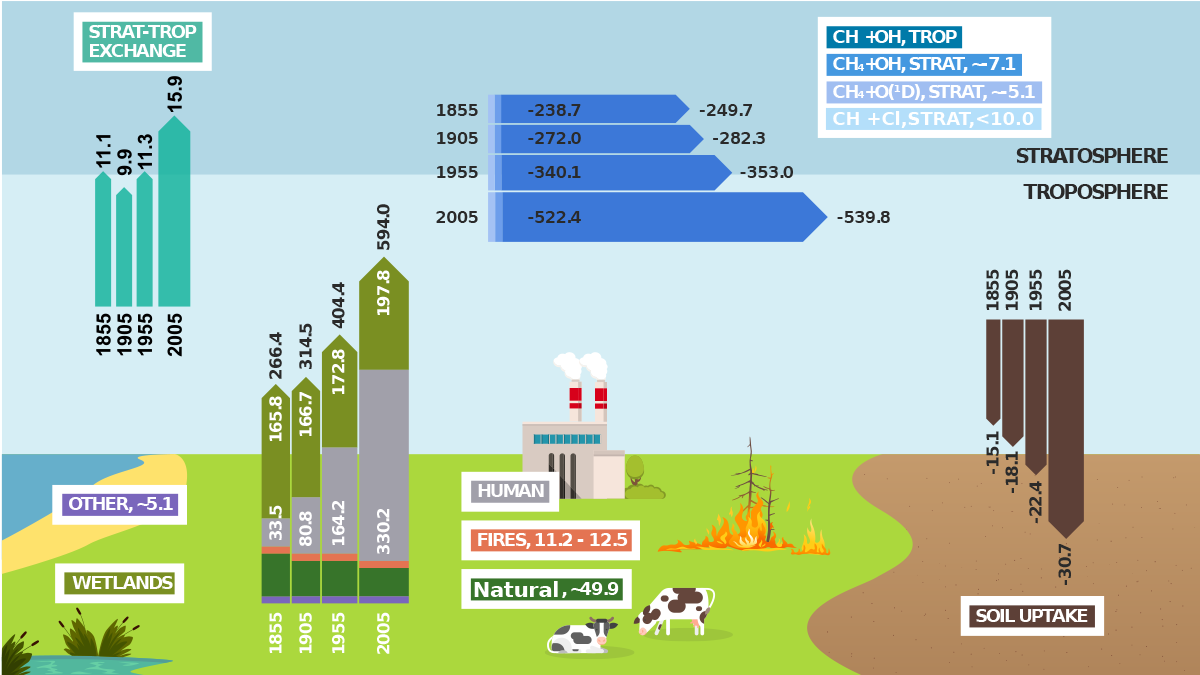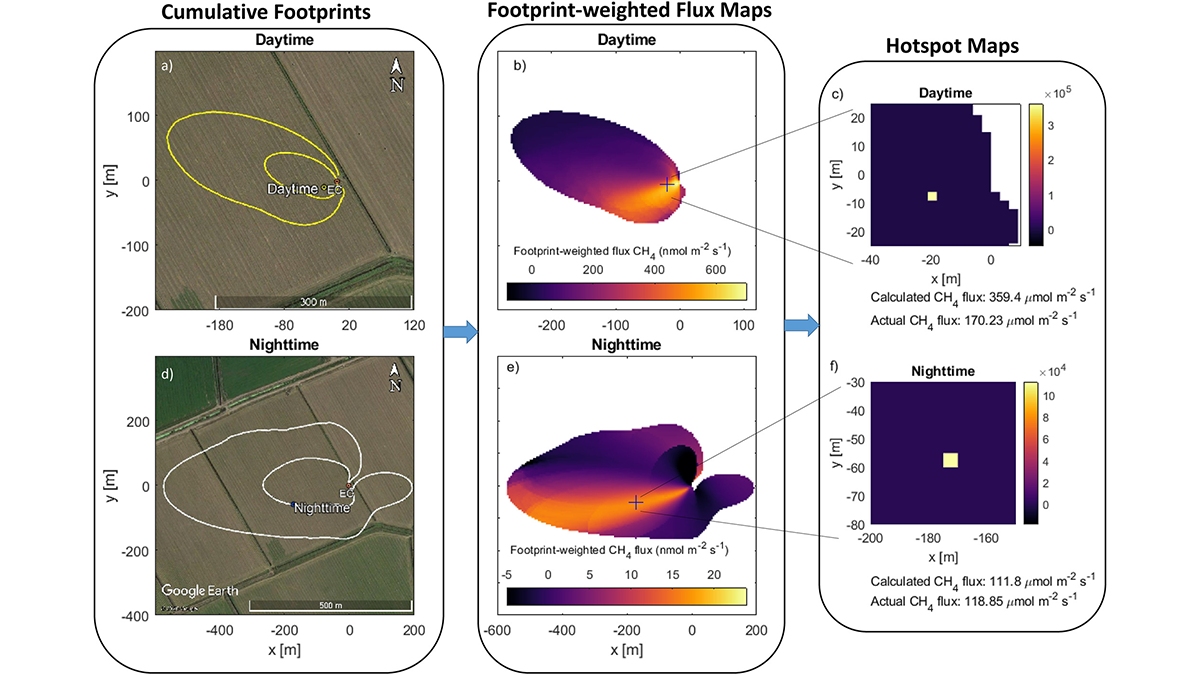Wildfires that wreaked havoc on California in 2020 filled the atmosphere with a potent greenhouse gas.
methane
The Greenhouse Gas Burden of Inland Waters
A global collaboration inventoried greenhouse gas emissions from rivers, lakes, and streams.
Hunting for Methane Hot Spots at the Top of the World
A visit to an Alaskan wetland with some of the world’s highest lake marsh methane emissions brings scientists one step closer to understanding the phenomenon.
Neural Networks Map the Ebb and Flow of Tiny Ponds
Ponds play an outsized role in carbon emissions, but their size makes them hard to track. Enter machine learning.
Delta Degradation Leads to Exacerbated Greenhouse Gas Emissions
Seismic ship surveys and seabed elevation maps of the Yangtze subaqueous delta reveal how the reduction of sediment supply to the coastal ocean can trigger increased greenhouse gas emissions.
Exploring Carbon Emissions in Peatland Restoration
Rewetting bogs can increase methane emissions in the short term, but ultimately the approach helps restore peatlands and create larger carbon sinks.
Tropical Wetlands Emit More Methane Than Previously Thought
Climate models could be vastly underestimating methane emissions from the world’s tropical wetlands, according to observational surveys of wetlands in Zambia.
A Significant Advancement in Modeling the Global Methane Cycle
The capability to fully model the global methane cycle advances the international climate science community’s ability of providing essential evidence to underpin climate mitigation policy.
Sleuthing for Culprits of Greenhouse Gas Emissions
A new approach to detect hot spots of methane emissions with eddy covariance flux towers proves to be a worthy contender.

